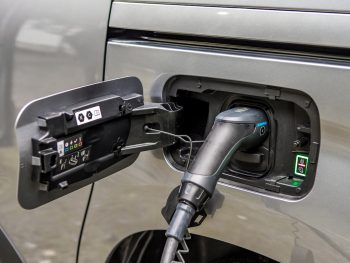160 councils still to start on EV fleet transition strategy in UK
A large number of councils in the UK are yet to implement an EV transition strategy for their fleet or to embark on existing plans.

Of the 295 councils that provided data, 56% of respondents are yet to make or strike ahead with EV transition plans
A Freedom of Information request from net zero consultancy specialist Smart Cities Connections Limited was sent to 383 local authorities across England, Scotland, Wales and Northern Ireland in November 2021.
Of the 295 councils that provided data, a total of 56 (19%) said they have absolutely no strategy planned, with a further 104 councils (37%) having transition strategies planned but not started. In total, 56% of respondents are yet to make or strike ahead with EV transition plans.
Andrew Merritt-Morling, chief executive of Smart Cities Connections, said: “Understandably, local authorities are at the forefront of leading public awareness of the growing urgency of the climate emergency. But a significantly large proportion representing 160 councils (or more than 54% of respondents) either do not have any plans in place to transition their own fleets or who have rudimentary plans but no firm implementation timetable.”
The data also reveals that the composition of council fleets is more complex than typical commercial fleets, making transition more challenging. Of the total 67,234 vehicles owned by the councils that responded, 13.2% are cars while 45.3% are LCVs, 9.8% are CVs in the 3.5-7.5 tonnes category and 16.5% are HGVs. The rest are made up of minibuses (8.3%), buses and coaches (1.0%), e-bikes/scooters/mopeds (2.7%) and unspecified (2.5%).
This is in stark contrast to the majority of company fleets which are more commonly weighted to cars and light commercial vehicles.
Local authorities have a wide range of transport requirements, which makes fleet transition even more complex than most traditional commercial fleets.
The data also reveals that current council fleets are still dominated by ICE-engined vehicles. Nearly nine out of 10 of all the vehicles operated by councils were diesel (56,379, or 83.85%) or petrol (3,449, or 5.13%). Only 3,762 vehicles (or 5.6%) were pure electric, whilst 564 (0.84%) were petrol or diesel hybrid vehicles.
However, when it comes to cars, the percentage of plug-in vehicles amongst local authorities is much higher. The research found that councils operate 1,862 plug-in hybrid or pure electric cars (21.0% of the total number of local authority-run cars). Conversely, just 2,091 council-operated vans under 3.5 tonnes (6.8%) can be plugged-in.
Alexandra James, head of research at Smart Cities Connections, said the evidence of councils transitioning to EV vehicles for cars was a positive lead but firmer action was needed.
“It is clear – as is true for businesses – there are leaders and laggards. More than two-fifths of councils still have not published plans for how they will make the transition from petrol/diesel to EV in line with the Government’s timetable, and we are now only eight years away from the first government-imposed deadline.”
Smart Cities Connections is urging local authorities to get in touch and explore how it can help them switch to EVs. Established in March 2021, the business has four strategic priorities – from fleet transition and consultancy, through to thought leadership and smart street infrastructure. Its fleet transition work includes a ‘From ICE-age to EVlution’ programme to enable the EV switch.
The business has also recently released a guide setting out some important considerations organisations need to bear in mind as councils and those from the private, public and not-for-profit sectors get ready to jump on the highway to net zero.
“Now is the time for organisations to start thinking about their individual journeys. No one size fits all, but the earlier they – including councils – start the process, the better the benefits to the council, the local taxpayer… and the environment,” concluded Merritt-Morling.
Commenting on the findings, Tomas Edwards, heads of marketing at GoWithFlow, said: “Any transition towards electric vehicles, whether this is part of an overall ‘sustainability’ effort or a standalone project requires conscious, defined strategy and real commitment to carbon reduction. Without this, and without the knowledge of the advice and expertise that exists, the steps required might be seen as too complex at this stage in industry and infrastructure development.
“Also, the hesitation may not be on the part of the council itself. But, rather on the mandated propellants for such change – and, we’d assume, prioritisation given the circumstances we still find ourselves in.
“Furthermore, when you consider the perceived difficulty and administration associated with selling products and services to public bodies in the UK, private enterprises are more than likely focusing their sales efforts elsewhere, where the sales cycle might not be quite so arduous.”

